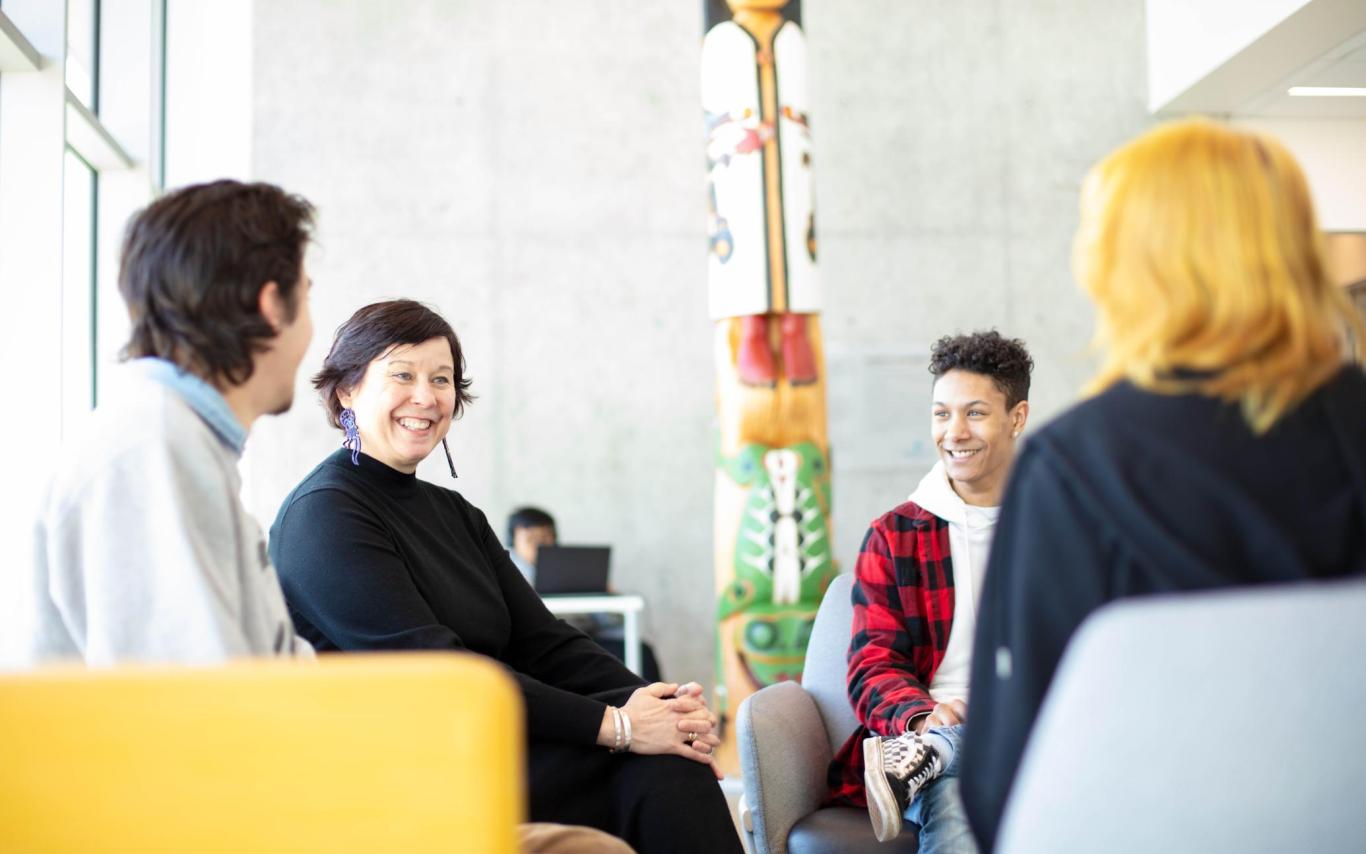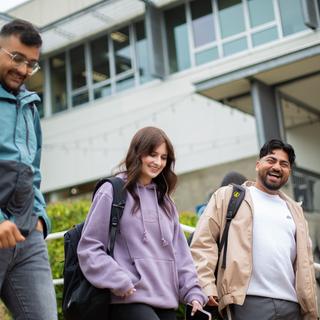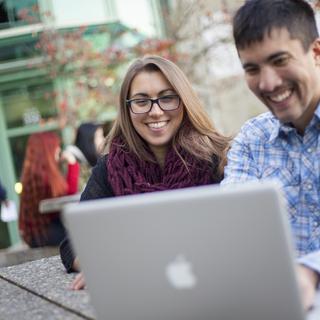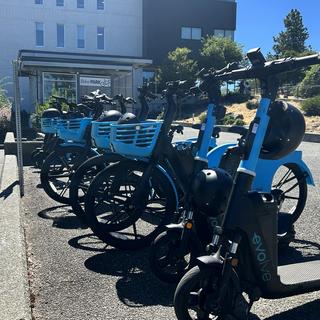Being a student in 2023
VIU President Dr. Deborah Saucier sat down with CKNW Radio host Jas Johal recently to talk about what it’s like to be a university student these days. Here are her answers to Johal’s questions.
Exam time can be incredibly stressful. Walk me through exam time in 2023. What does it look like for students?
One of the things we’ve learned over the last little while, since I was in school – and probably you too – is that actually saying that somebody has to know something on a Thursday during these three hours isn’t the best way to assess knowledge. In fact, setting exams that are more practical, more applied, that can be taken home and worked on over time actually can provide more thoughtful results. That unfortunately doesn’t make them less stressful, and so we do see a bounce in mental health requests, primarily around anxiety, exam stress, nerves, that kind of thing at this time of year. I tell students to put it in their daytimer: go exercise – if you don’t plan it, you won’t do it – make sure you eat healthy, all those kinds of things. But again, even with new techniques, it’s still stressful. Student don’t want to fail. They want to make their families proud, they want to achieve their dreams. It’s high stakes and it is stressful.
Can students work part-time, carry a full load of five courses and still have a life as well?
No, they can’t. Well, some can of course, but what I would say is an interesting stat is that the four-year degree now takes an average of five years because so many students are working. But also probably, unlike when you and I went to school, many students have family commitments. These are elder care, or childcare, and then they may have commitments to family businesses, especially if they’re first-generation Canadians who are trying to achieve that work-life balance. So that makes it very challenging. I encourage students, if they can afford the time, to think about stretching it out a little bit longer so that they have time for their life, because their life isn't going to happen to them four or five years from now when they’re done, their life is happening to them right now and if it’s a really gorgeous day out there, go for a run and don’t sweat it so much.
Are you seeing a general increase in older students in the university environment?
It depends on the university and the topic being studied, but yes, especially at Vancouver Island University. Our students tend to be older, they don’t tend to directly come right from Grade 12. They might take a gap year, which is incredibly popular with student these days, but they may have worked for a couple of years and then decided that they need to come back to get that credential so they can get to that next step in their career. Or they may have been out for 10, 12 years and they want to upgrade that credential again, so at VIU we do see a lot of students who are older, who have family commitments and who work.
Can you give us some more background on Vancouver Island University?
We’re about 15 years old, and we offer everything from adult basic education and upgrading to graduate programs such as a Master of Business Administration and Master of Community Planning, as well as bachelor’s degrees, diplomas and certificates. We also offer a wide variety of the trades, so we pretty much have something for everyone. We’re the only university north of the Malahat, so we have to meet a wide variety of needs. There’s a real need for skilled trades; there’s a real need for skilled anything these days. It is very hard to find people who have those kind of attributes and training anywhere, not to mention the mid-Island.
You were named president in 2019. What has that been like? You were given a huge amount of responsibility and then COVID hit.
That was a wild ride. All I can say is that one of things I didn’t anticipate in my first year as president is that we would have to close the university so that we could retool and go fully online. We went from having 25 to 30 per cent of our classes online to almost 100 per cent in a week, and for that I’m very grateful to our faculty for retooling everything. With that being said, we never actually went home either. It’s difficult to imagine training a welder if we don’t actually let them try it out, or a nurse or science majors if they can’t actually get in the lab and so we never went home fully, but we did push almost all of our stuff online. That was tremendously exciting, scary and nerve-wracking but we learned an awful lot through that period too.
Are there things that you’ve kept? Is the online learning component even more pronounced now? COVID sped up a lot of trends. Are you keeping any specific programs or the way you do things that were specific to COVID today?
One of things I think we did learn in COVID more than anything is that we could be more flexible with our students and that it wouldn’t break anything.I think too often we get wedded to our own ideas and in fact we learned that for a number of reasons, we had to be more flexible with our deadlines and things like that, and strangely, the university didn’t end. Most of the things we learned were things that we noticed during the time period in which we were all online, and that is the need for human connection. We serve a demographic typically in university of 18 to 23 and that’s the age where you’re making the friends you’re going to have for the rest of your life. That need for human connection to share your story, to explore things, to do dumb stuff, all of that is part of that age group and all of that is better when you’re in-person. And so what we’re seeing is this real desire in our students to connect personally, face-to-face with each other.
Do you worry about artificial intelligence as an educational institution and what it could do to the traditional term paper?
Sure, I mean there’s always the potential for something really Terminator style in the education system to happen. I actually think you could flip it on its head and use it as a tool to be really creative. Use it as a tool to hand your students a fully formed paper, that you’ve created using AI yourself, and then get them to go and see if the cited resources actually said that and then decide whether or not it was a good paper and give it back. I’ve never learned so much as when I have to teach something, and when you have to come up with a grade and justify that grade, that’s actual learning. So you can be creative with this too and I’m a glass half-full person, and so I just look at this as an opportunity to do something really creative and different.




